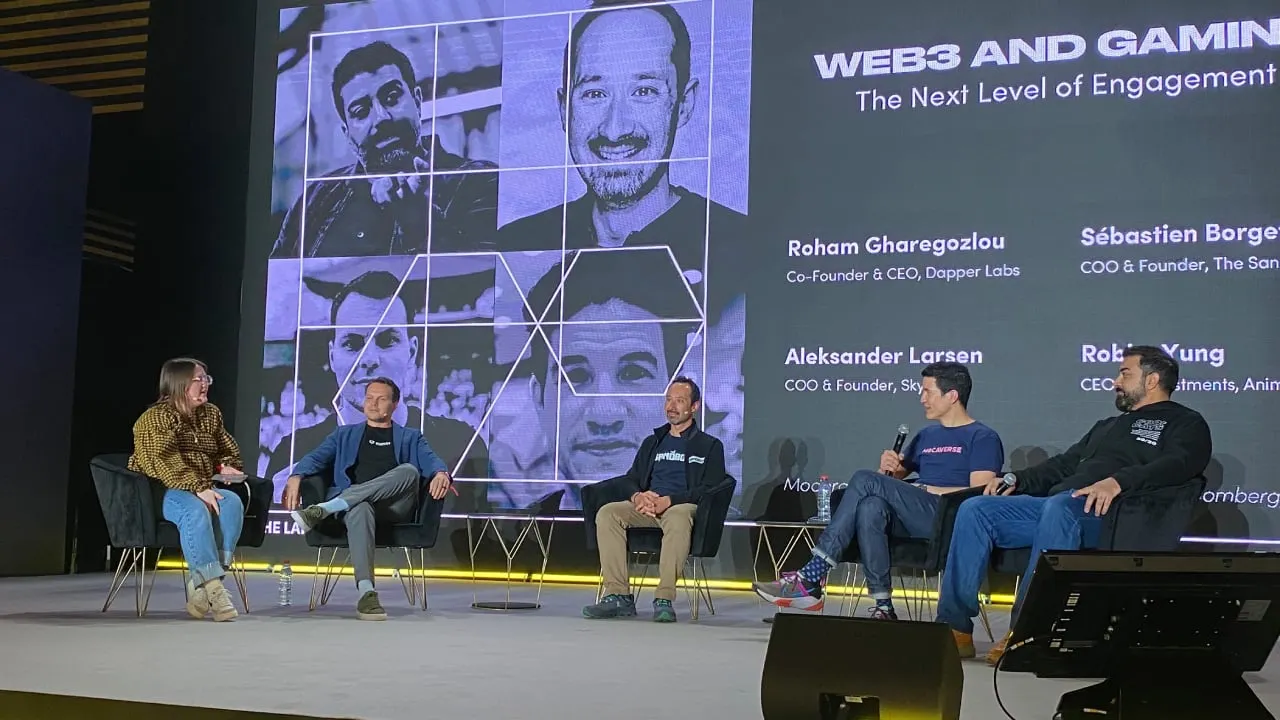The Sandbox founder Sébastien Borget argued at last week's NFT Paris conference that Web3 gamers have “lost patience” with games that deploy token incentive models without actual utility.
Speaking in a panel discussion with Animoca Brands CEO Robby Yung, Sky Mavis founder Aleksander Larsen, and Dapper Labs co-founder and CEO Roham Gharegozlou, Borget argued that many blockchain games had deployed similar token incentive mechanics, but “didn't deliver fast enough” on utility for in-game tokens and NFTs.
“Players lost patience and looked the other way,” he said. “Only very few projects with actual gameplay and actual utility” have endured the bear market, Borget added, further noting that the current wave of Web3 games are allowing players access to the core gameplay from the jump, rather than “attracting players for the token.”
Tokens work as a reward mechanism for engagement “once they've been hooked for the gameplay itself, not for the tokenomics,” he added.
Sky Mavis (Axie Infinity) founder Larsen argued that the industry has “course corrected too far” away from promoting the principle of in-game tokens, towards the idea that “games just have to be fun.” He said that it’s “an easy level thing to say, but it doesn’t really have any meaning—because of course all games have to be fun.”
Larsen pushed for the industry to pivot back to the core message of digital ownership, and “the economic incentives that game developers can create to acquire new users—so you don't even have to use the traditional platforms.”
He lauded Axie Infinity—which saw surging demand in 2021—as “a stroke of genius in the sense that it unlocked something brand new for the industry,” while conceding that "there were also a lot of things with it that needed to be improved.”
He anticipated “hundreds, maybe thousands” of iterations on its incentive model, “which will lead us to the sustainability that we need in this industry—and that is going to be very token-driven.”
Dapper Labs (NBA Top Shot) CEO Gharegozlou pointed out that tokens can be used to “transfer ownership of the actual experience back to the users,” something that has yet to play out in the market.
“People are investing so much of their time and energy in these digital worlds that they often have very little or zero grounding in and, and that token economy can be a way to give it back to the customer,” he said.
Gharegozlou added that he anticipates seeing developers building games upfront on Dapper Labs’ Flow blockchain, and then transferring ownership to the player community.
He also predicted that tokens can become part of an ecosystem existing on top of games, across lending protocols and DeFi. Players are “gaining identities and reputations and assets that can then be used in other kinds of, maybe non-game protocols that also have their own tokens,” he said.
Animoca Brands CEO Yung suggested that before the long-anticipated interoperable metaverse comes into play, with digital objects that can be migrated between worlds, an “intermediary stage” could emerge.
“One way you can think about transferring your stuff from game to game is by transferring the value that you have,” he explained, “so that you can actually unlock value from one game through fungible tokens and bring that value to another game.” While conceding that it’s an “intermediary solution,” he argued that it represents a way to “facilitate some level of interoperability.”
Edited by Andrew Hayward

